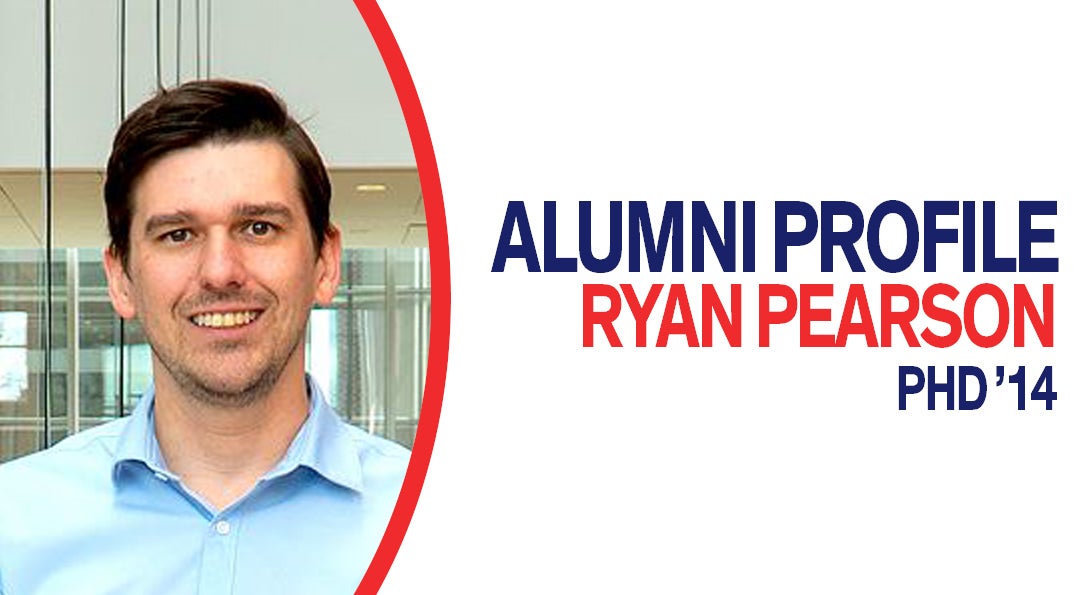Alumni Profile: Ryan Pearson, PharmD ’14

Pearson launches research career with multidisciplinary UIC background
Dr. Ryan Pearson completed a PhD in biopharmaceutical sciences at UIC in 2014 and became a principal investigator just two years ago. But he’s already seen his work produce results for patients, a rare privilege so early in a career, Pearson said.
Now an assistant professor at the University of Maryland Department of Pharmaceutical Sciences, Pearson runs a lab investigating immunomodulatory biomaterials. Before coming to Maryland, though, Pearson worked on immune tolerance at the University of Michigan as a postdoc and as a scientist at Cour Pharmaceuticals. There, he helped develop a nanoparticle platform for treating celiac disease, TIMP-GLIA, which has successfully passed Phase I and II trials.
“There’s not that many people that are at such an early stage in their career like myself that have had the chance to develop something on the bench and see it all the way into patients,” he said. “And I think that’s really exciting.”
The mix of skills that launched Pearson into such early research success came from the unique background he gained at UIC. Pearson earned his bachelor’s in chemical engineering from UIC in 2008, before going on to the PhD program in the College of Pharmacy. His drive to marry engineering with health research came from both aptitude and personal inspiration, he said.
“In 2009, my mother passed away due to breast cancer,” he said. “And seeing firsthand the toll that conventional chemotherapy took on her inspired me to pursue new ways to apply engineering strategies to create improved cancer therapies.”
Pearson said he credits a lot of his success in research to his advisor at UIC, Dr. Seungpyo Hong, now at the University of Wisconsin–Madison, who had a similar engineering-meets-pharmacy background. “His ability to foster collaborations gave us many chances to work on a variety of projects,” Pearson said. “His leadership and scientific drive were really impactful for me.”
At his lab now, Pearson draws on that foundation to push an “elegance-insimplicity approach,” he said. “We’re trying to develop unique approaches using simple biomaterials and leverage their inherent properties to offset many of the immunological disorders that afflict patients today.”